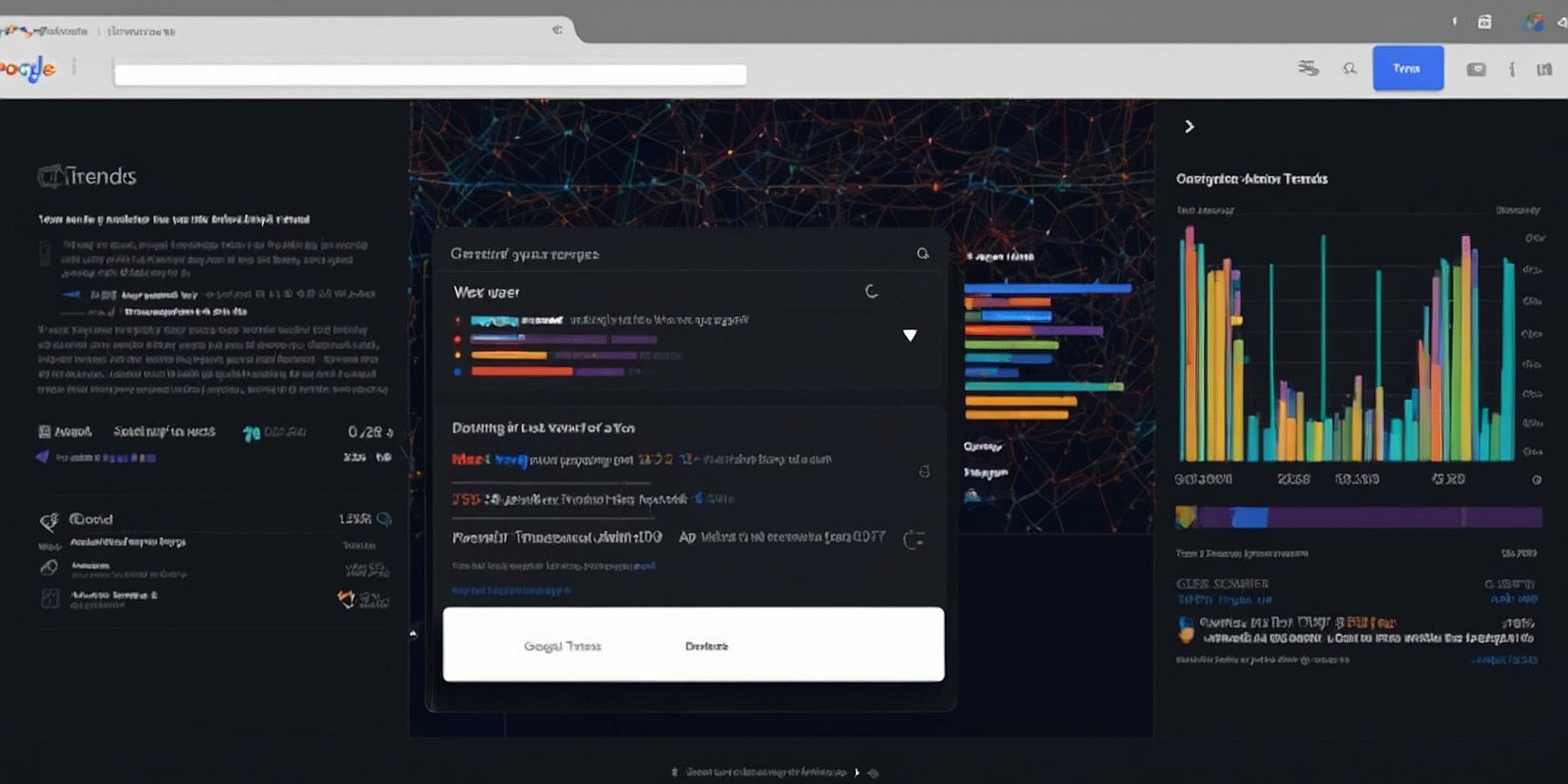Unearth Hidden Insights: Web Scraping for Market Research Advantage
I am a creative and analytical person who enjoys problem-solving and finding creative solutions. I am driven by curiosity and a passion for learning, and take initiative to explore and understand new concepts. I am a great communicator and collaborate well with others, and am always looking for opportunities to improve myself and my team.
Unearth Hidden Insights: Web Scraping for Market Research Advantage
The Challenge of Market Research

Traditional market research methods can be time-consuming and expensive. They often involve conducting surveys, focus groups, and interviews, which require a significant amount of resources. Additionally, the data collected from these methods can be limited and may not provide a comprehensive view of the market.
- Surveys can be biased and may not accurately represent the target population.
- Focus groups are often small and may not provide a broad perspective.
- Interviews can be time-consuming and may not yield the desired results.
These challenges can make it difficult for businesses to gain a clear understanding of their market, hindering their ability to make informed decisions.
The Power of Web Scraping
But what if there was a solution to these challenges? A tool that could provide you with a wealth of data quickly and efficiently? Enter web scraping. This powerful tool can revolutionize your market research, providing you with the information you need to stay ahead of the competition.
Web scraping can help you gather data from various sources on the internet, providing you with a comprehensive view of the market. This can help you identify trends, understand consumer behavior, and make informed decisions. But what exactly is web scraping, and how does it work?
Understanding Web Scraping
Web scraping is a technique used to extract data from websites. It involves using software to automate the process of gathering information from the internet. Here's a simple breakdown of how it works:
- A web scraper sends a request to the URL of the website you want to scrape.
- The server responds to the request and sends back the data.
- The web scraper then parses the data, extracting the information you need.
- The extracted data is then stored in a format that's easy to analyze, such as a CSV or Excel file.
Web scraping can be a game-changer for your market research, providing you with a wealth of data quickly and efficiently. But is it legal? Stay tuned as we delve into the legal landscape of web scraping in the next section.
Is Web Scraping Legal?
One of the most common questions that arise when discussing web scraping is its legality. Is it legal to scrape data from websites? The answer is not as straightforward as you might think. It's a gray area that depends on several factors, including the location, the website's terms of service, and the data being scraped.
The Legal Landscape of Web Scraping
In the United States, the legality of web scraping is governed by several laws. The most relevant ones are the Computer Fraud and Abuse Act (CFAA) and the Digital Millennium Copyright Act (DMCA). The CFAA prohibits accessing a computer system without authorization, while the DMCA protects original content from copyright infringement.
However, these laws are not explicitly designed to address web scraping. As a result, court rulings have varied. For instance, in the case of LinkedIn vs. hiQ Labs in 2019, the court ruled in favor of hiQ Labs, stating that web scraping publicly available data does not violate the CFAA.
Despite this, it's crucial to remember that each case is unique, and a favorable ruling in one situation does not guarantee the same outcome in another. Therefore, it's always a good idea to consult with a legal expert before embarking on a web scraping project.
Ethical Considerations
Beyond the legal aspects, there are also ethical considerations to keep in mind when scraping data from websites. Just because you can scrape data doesn't always mean you should. Here are a few guidelines to follow:
- Respect the website's terms of service: If a website explicitly prohibits web scraping in its terms of service, it's best to respect that.
- Don't harm the website: Scraping a website too aggressively can slow down or crash the site, which affects its operation and the experience of other users.
- Be transparent: If you're scraping data for research or business purposes, be open about it. Transparency can help build trust and avoid potential legal issues.
As Tim Berners-Lee, the inventor of the World Wide Web, once said, "Data is a precious thing and will last longer than the systems themselves." While web scraping is a powerful tool, it's essential to use it responsibly, respecting both the law and the rights of the data owners.
Now that we've addressed the legal and ethical aspects of web scraping, are you ready to dive into the practical side of things? Stay tuned as we delve into how to use web scraping for market research in the next section.
How to Use Web Scraping for Market Research
Now that we've established the power and legality of web scraping, let's dive into the practical aspect of it. How can you use web scraping for market research? Let's break it down into a step-by-step guide.

Scraping Google Trends
Google Trends is a goldmine of data for market researchers. It provides insights into what people are searching for, when they're searching for it, and how these trends change over time. But how can you scrape this data for your research?
First, you need to identify the keywords relevant to your market. These could be product names, brand names, or any other terms that people might use when searching for your product or service. Once you have your list of keywords, you can input them into Google Trends to see how their popularity has changed over time.
Next, you need a tool to scrape this data. There are many web scraping tools available, some of which are specifically designed for scraping Google Trends. These tools will allow you to automate the process, scraping data at regular intervals and exporting it in a format that's easy to analyze.
Finally, you need to analyze the data. Look for trends and patterns that could inform your market research. For example, if you notice a sudden spike in searches for a particular product, this could indicate a growing demand that you could capitalize on.
Exporting and Using Scraped Data
Once you've scraped your data, what do you do with it? Here's where the real magic happens.
- Export the data: Most web scraping tools will allow you to export your data in a variety of formats, such as CSV or Excel. Choose a format that works best for your analysis tools.
- Integrate with other tools: You can integrate your scraped data with other tools for further analysis. For example, you could import your data into a spreadsheet tool like Excel or Google Sheets, or a data visualization tool like Tableau.
- Analyze the data: Look for patterns and trends in your data. This could involve statistical analysis, data visualization, or simply reading through the data and noting interesting findings.
Remember, the goal of web scraping for market research is to gain insights that can inform your business decisions. So, make sure to take the time to thoroughly analyze your data and draw meaningful conclusions.
As the famous statistician W. Edwards Deming once said, "Without data, you're just another person with an opinion." With web scraping, you can turn your market research into a data-driven powerhouse.
Now that you know how to use web scraping for market research, are you ready to take it a step further? Stay tuned as we delve into the role of web scraping in competitive intelligence in the next section.
The Role of Web Scraping in Competitive Intelligence
Have you ever wondered how some businesses always seem to be one step ahead of the competition? The secret might be simpler than you think. They're likely using web scraping for competitive intelligence. This powerful tool can provide a wealth of information about your competitors, helping you to stay ahead of the curve.
Gathering Competitor Data
Web scraping can be a game-changer when it comes to gathering competitor data. It allows you to collect information from various sources, such as competitor websites, social media platforms, and online marketplaces. This data can include pricing information, product descriptions, customer reviews, and more.
For instance, let's say you're a small business owner selling handmade candles. By using web scraping, you can gather data on how your competitors price their candles, what scents they offer, and how customers are responding to their products. This information can help you make informed decisions about your own product line and pricing strategy.
Monitoring Market Trends
Web scraping isn't just about keeping an eye on your competitors. It's also a powerful tool for monitoring market trends. By scraping data from various online sources, you can gain insights into what's trending in your industry.
For example, you might notice a growing interest in eco-friendly products in your industry. With this information, you could consider introducing a line of eco-friendly candles to meet this emerging market demand.
As the famous business magnate, Bill Gates, once said, "Information technology and business are becoming inextricably interwoven. I don't think anybody can talk meaningfully about one without the talking about the other." This quote perfectly encapsulates the importance of using tools like web scraping to gather valuable business intelligence.
Now that you understand the role of web scraping in competitive intelligence, you might be wondering how it fits into the broader context of research methods. Is web scraping a legitimate research method? How has it influenced research in the digital age? Stay tuned for the next section where we'll delve into these questions and more.
Web Scraping as a Research Method

Web scraping has emerged as a powerful research method in the digital age. But what exactly makes it so influential? And how can it benefit your research efforts? Let's dive in and explore.
The Influence of Web Scraping on Research
Web scraping has revolutionized the way we conduct research in the internet age. It has made it possible to gather vast amounts of data from the web in a fraction of the time it would take to do so manually. This has not only increased the efficiency of research but also the depth and breadth of insights that can be gleaned.
For instance, a study by the University of Southern California used web scraping to analyze the content of over a million websites to understand the spread of misinformation during the 2016 U.S. Presidential Election. This would have been nearly impossible to achieve manually.
Web scraping has also democratized research. It has made it possible for small businesses, independent researchers, and even individuals to conduct in-depth research that was once the preserve of large corporations and research institutions.
The Benefits of Web Scraping
Web scraping offers numerous benefits for research. Here are a few:
- Efficiency: Web scraping automates the data collection process, saving you time and effort.
- Scale: With web scraping, you can collect data from thousands, even millions, of web pages simultaneously.
- Accuracy: Since the data is collected by a computer program, the risk of human error is minimized.
- Flexibility: Web scraping can be tailored to collect exactly the data you need, making your research more focused and relevant.
Web scraping is not just a tool for market research or competitive intelligence. It's a powerful research method that can transform the way you gather and analyze data. But how can you get started with web scraping? What tools and resources are available to help you?
Stay tuned as we delve into these questions in the next section. We'll introduce you to some of the best tools and services for web scraping, and provide tips on how to use them effectively for your research needs.
Resources for Web Scraping
.jpg)
Now that we've covered the what, why, and how of web scraping, let's dive into the resources available to help you get started. Whether you're a seasoned programmer or a beginner, there are tools and services out there that can simplify the process and make web scraping a breeze.
Tools for Web Scraping
There are numerous tools available for web scraping, each with its own strengths and weaknesses. Here are a few examples:
- Beautiful Soup: This Python library is designed for web scraping purposes to pull the data out of HTML and XML files. It creates a parse tree from page source code that can be used to extract data in a hierarchical and more readable manner.
- Scrapy: Another Python-based tool, Scrapy is an open-source web crawling framework that allows you to write spiders to scrape data from websites. It's highly customizable and can handle a wide range of scraping tasks.
- Octoparse: This is a user-friendly, point-and-click tool for web scraping. It's great for beginners who don't have coding skills, as it allows you to scrape websites by simply clicking on the data you need.
Remember, the best tool for you will depend on your specific needs and skill level.
Web Scraping Services
If you're not interested in doing the scraping yourself, or if you have a large-scale project that requires more resources, you might consider using a web scraping service. These services handle all the technical aspects of web scraping, allowing you to focus on analyzing the data. Here are a few examples:
- Import.io: This service provides a platform that allows you to convert entire web pages into structured data without any coding.
- ParseHub: ParseHub offers both a free tool for simple data extraction and a paid service for more complex projects. It can handle interactive maps, calendars, and even handle JavaScript and AJAX pages.
- Scrapinghub: From the creators of Scrapy, Scrapinghub provides a cloud-based web crawling platform, as well as professional services for data extraction.
Again, the best service for you will depend on your specific needs and budget.
Wrapping Up
In conclusion, web scraping is a powerful tool for market research. It can help you gather and analyze data more efficiently, keep an eye on your competitors, and stay ahead of market trends. With the right tools or services, you can start leveraging web scraping for your own research. So why wait? Start exploring the world of web scraping today!



.jpg)
.jpg_nowm_640.jpg)

.jpg)
.jpg)